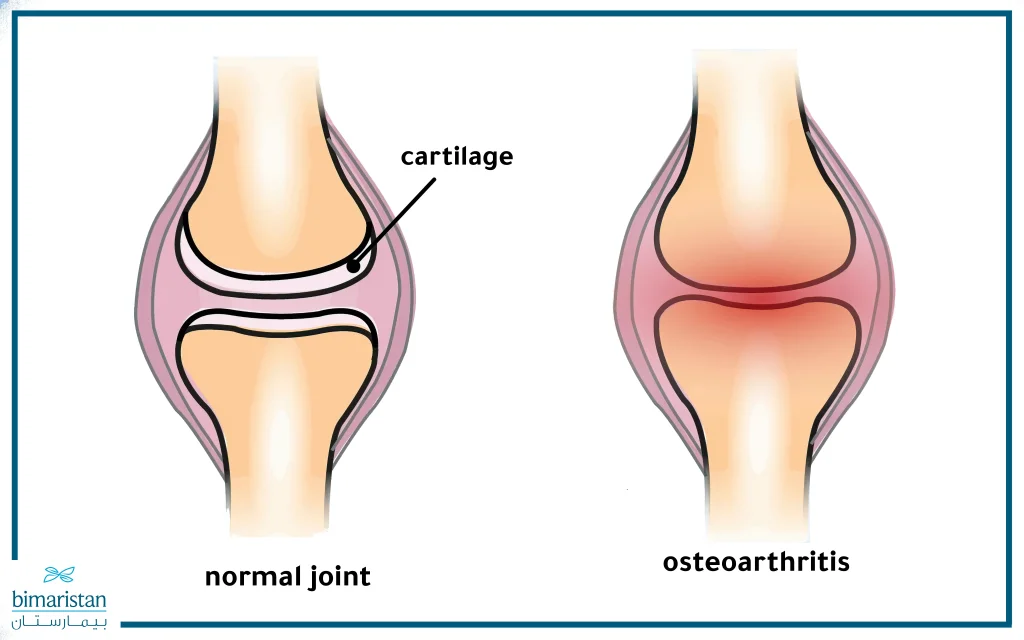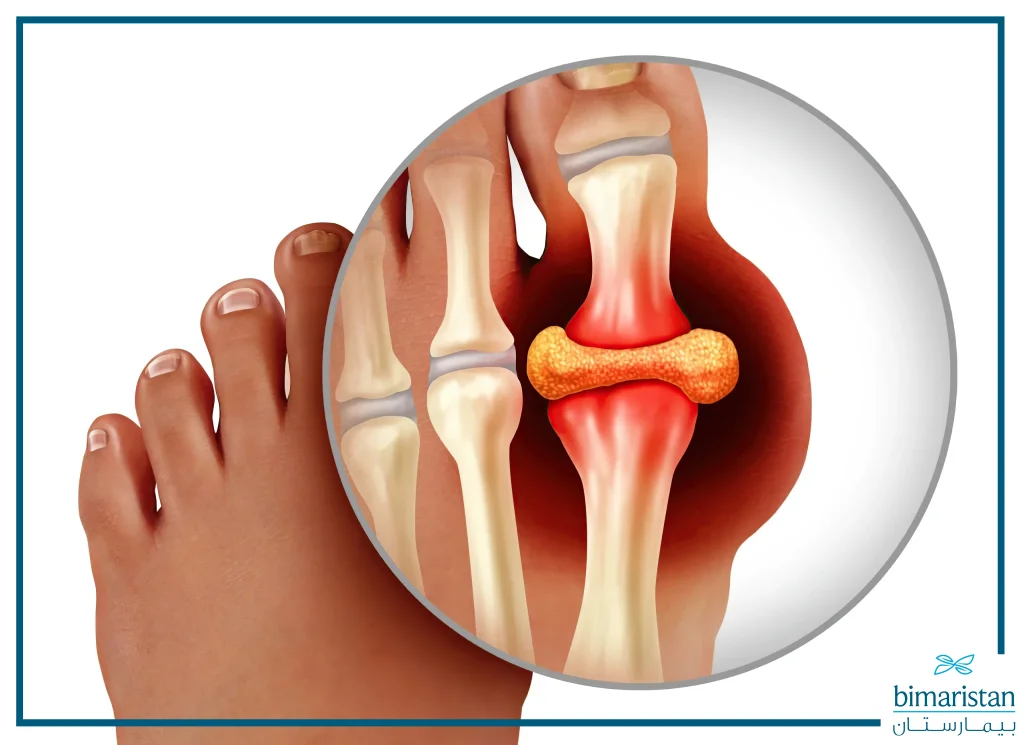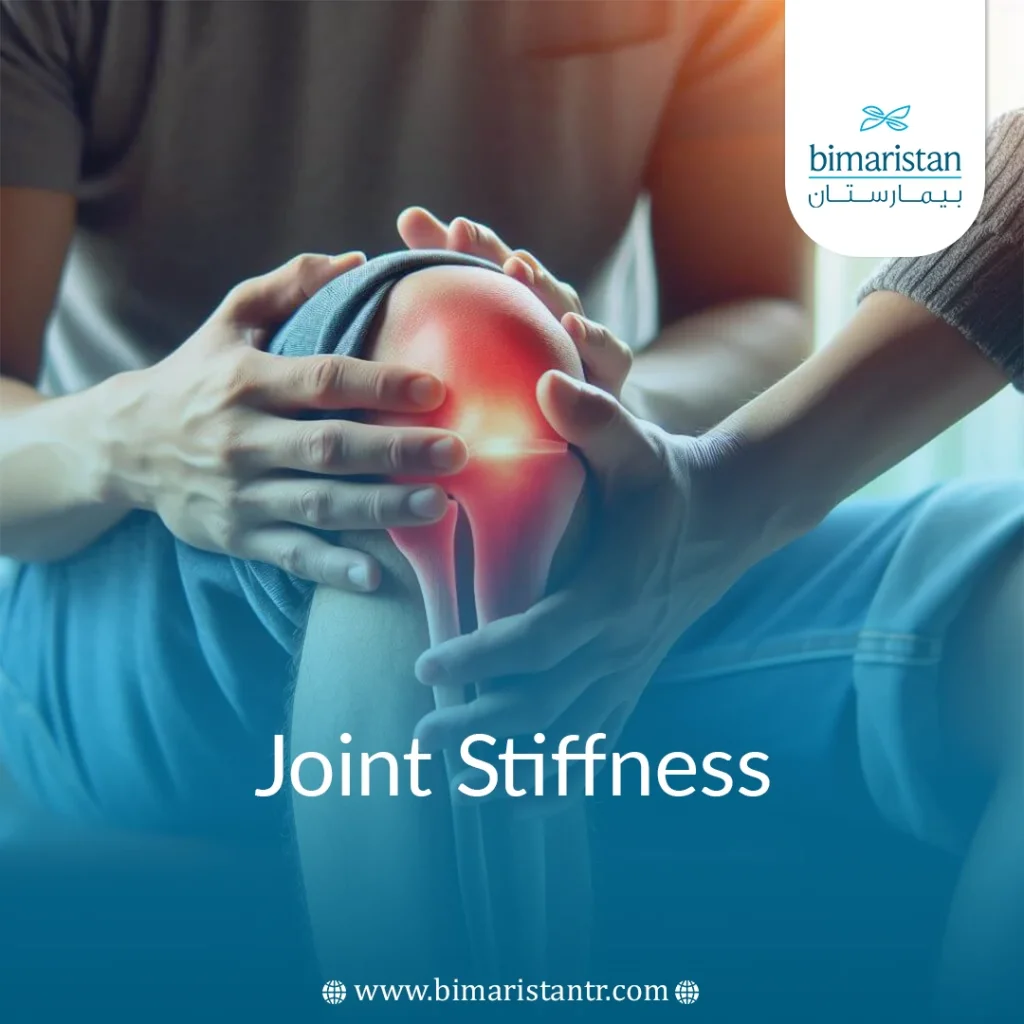Joint stiffness or arthritis is one of the most concerning conditions for the elderly. This damage doesn’t occur suddenly but instead progresses with age. So, how does it happen, what are its symptoms, and how can it be treated?
Stiffness in the joints occurs due to long-term movement and the use of the musculoskeletal system involving joints, bones, and muscles over the years. What is arthritis, and how can joint stiffness be treated according to its causes?
About joint stiffness
As one age, symptoms of joint deterioration begin to appear, indicating a dysfunction in joint function leading to impaired movement. Most sufferers experience difficulties in the early morning (such as stiff fingers in the morning). Sleep and prolonged periods of lying down are significant factors for stiff joints in the morning upon waking and difficulty in movement.
Types of joint stiffness
Understanding the degree of the stiffness is essential to determine the appropriate treatment method. The degree of stiffness varies:
Mild joint stiffness
Joint stiffness may initially be mild, limiting movement for a short period, particularly in the early morning hours or after prolonged sitting. It’s worth mentioning that the duration of lying down negatively impacts stiffness symptoms in the individual.
Severe joint stiffness
Severe cases of stiff joints occur when inflammation is present in the joint. This stiffness accompanies other symptoms, such as pain, making walking and standing difficult. It is often accompanied by discomfort, which intensifies especially in overweight individuals, as excess weight negatively affects joint movement in general.
Why does joint stiffness occur?
Understanding the underlying cause of stiff joints is crucial, as identifying the cause is half the treatment. Not all cases of joint stiffness result from aging and joint deterioration; there are many other causes of stiff joints, such as:
Various types of arthritis-related inflammation:
- Rheumatoid arthritis
- Ankylosing spondylitis
- Psoriatic arthritis
- Reiter’s syndrome
- Inflammatory bowel disease-associated arthritis
- Idiopathic osteoarthritis
Additionally, joint infections and inflammations, such as:
- Septic arthritis
- Reactive arthritis
Stiff joints can also result from conditions like gout, osteoporosis, and other joint diseases. Poor dietary habits and obesity can also contribute to symptoms of stiff, painful joints.
Symptoms of joint stiffness
Symptoms accompanying stiff joints vary depending on their cause. For instance, rheumatoid arthritis, an autoimmune disease where the body’s immune system attacks healthy tissues, resulting in joint damage, may lead to symptoms such as:
- Joint pain and stiffness
- Joint deformity
- Bone erosion
- Joint swelling
Treatment for joint pain and stiffness
Joint pain and stiffness can sometimes be manageable, but the treatments and approaches directed towards it do not cure the underlying disease; instead, they are palliative treatments aimed at improving the patient’s quality of life.
Treatment for stiffness caused by rheumatoid arthritis.
Since this disease is related to autoimmune conditions, there is no natural cure for its symptoms, and using a treatment to prevent its progression is not possible. However, a disease-modifying treatment can be used, including medications for treating rheumatoid arthritis joint stiffness:
- Steroidal medications: Treatment starts with small doses (5-10 mg/day) and should be given in combination with other treatments as they only reduce joint destruction by 50%.
- Antimalarial drugs: Patients should undergo an eye examination every six months to detect retinal pigmentary inflammation.
- D-penicillamine: Due to its adverse effects, its use should be minimized. It is taken on an empty stomach in the morning, and vitamin B6 reduces its side effects.
- Stiffness treatment with gold salts: 25-50 mg/week by intramuscular injection or 6 mg/day by oral intake. Injections can also be administered intraarticularly.
- Methotrexate: The most popular drug, given once weekly at a dose of (7.5-10) mg/week. The dose can be increased to 20 mg/week by monitoring blood elements, liver enzymes, and kidney function. Its use is prohibited during pregnancy and breastfeeding, and fertility is not permitted in both sexes for three months after stopping its use.
- Leflunomide: Regulates the immune system. It is given at a dose of 100 mg/day for three days, then 20 mg/week. Fertility is prohibited in both sexes for two years after discontinuation, and it is not given during breastfeeding.
- Sulfasalazine: A common drug given at a dose of 500 mg/day, gradually increased to the therapeutic dose of 2-3 g/day. Blood elements and liver function should be monitored.
- Biological treatments: Promising new therapies.
Treatment of stiffness caused by osteoporosis
Osteoporosis, or bone-thinning disease, can lead to osteoarthritis (joint breakdown). It is common in older people (over 50 years old) and can cause stiff fingers as well as stiff hips due to the deterioration of the joints and the cartilage protecting the bones. Stiffness symptoms are common in areas such as:
- Knees
- Hips
- Fingers
- Neck
- Back

Over time, bone spurs may appear, and cracking sounds may be heard during joint movement. To treat osteoarthritis joint stiffness:
- Dietary measures should be taken to acquire as much bone mass as possible. This is especially important in older adults to slow down bone loss.
- Exercise has a beautiful effect on gaining bone mass.
- Calcium-rich diet: To maintain a good calcium level in the blood, daily calcium intake should be at least 1-1.5 g. When calcium intake is insufficient, add 500-1000 mg of calcium/day, accompanied by monitoring of urinary calcium to avoid kidney stone formation.
- Vitamin D: If necessary, supplement with 800 international units/day of vitamin D3.
- Anti-resorptive drugs and hormone replacement therapies can be used as pharmacological treatment.
Painkillers for treating joint stiffness
Painkillers can be used to alleviate symptoms of stiff joints, like knee stiffness and pain, such as:
- Paracetamol
- Non-steroidal anti-inflammatory drugs
- Opioid medications
In advanced cases, the patient may need joint replacement.
Treatment of stiffness caused by lupus
Lupus is an autoimmune disease similar to rheumatoid arthritis. In addition to swelling, symptoms may include joint pain and stiffness all over body, making it one of the causes of stiff knees. Medications for lupus joint stiffness are:
- Anifrolumab (Saphnelo): Anifrolumab is a primary treatment for lupus symptoms.
- Voclosporin (Lupkynis): Binds to calcineurin protein, contributing to reducing kidney inflammation.
Hydroxychloroquine (antimalarial drugs) and corticosteroids can be used as supportive treatment along with a good lifestyle.
Treatment for stiffness caused by bursitis.
A bursa is a small sac filled with fluid. Bursitis inflammation can cause painful joint stiffness commonly seen in joints such as:
- Elbow
- Shoulder
- Knee
- Big toe
- Ankle
In this case, joint stiffness can be treated with joint rest for weeks by reducing body activity and maintaining the joint stable until the bursa recovers. Oral and topical non-steroidal anti-inflammatory drugs can support this treatment.
Treatment of stiffness caused by gout
A gout attack comes on suddenly—unlike other causes of joint stiffness—and in this case, they become stiff, painful joints, primarily upon waking from sleep. Although gout can damage any joint, the big toe is often the first affected joint.

Medications for treating gouty joint stiffness include:
- Colchicine orally
- Non-steroidal anti-inflammatory drugs
- Corticosteroids
- Interleukin-1 inhibitors
In addition, a diet low in uric acid and non-fattening should be followed.
Joint stiffness caused by bone cancer
Bone cancer is one of the rare causes affecting joint stiffness. In this case, the patient should undergo radiation and chemotherapy.
Relieving joint stiffness at home
Joint stiffness can be treated at home using several methods, including:
- Applying hot or cold compresses at high temperatures may be beneficial in treating stiff joints.
- Apply a cold or ice pack to the stiff joint for 15-20 minutes, repeating this process daily.
Natural treatment for joint stiffness
You can resort to:
- Fish oil supplements: Recent studies have shown their benefits in reducing inflammation. The optimal dose ranges from 250 to 500 mg/day.
- Flax seeds; these seeds contain alpha-linolenic acid, which helps alleviate inflammation symptoms.
Identifying the cause of stiffness is the key to developing a plan for treating stiff joints or relieving joint sclerosis pain (like stiff knee pain). Therefore, it is essential to reach an accurate diagnosis before starting treatment.
You can also learn about all joint replacement treatment methods in Turkey.
References:



